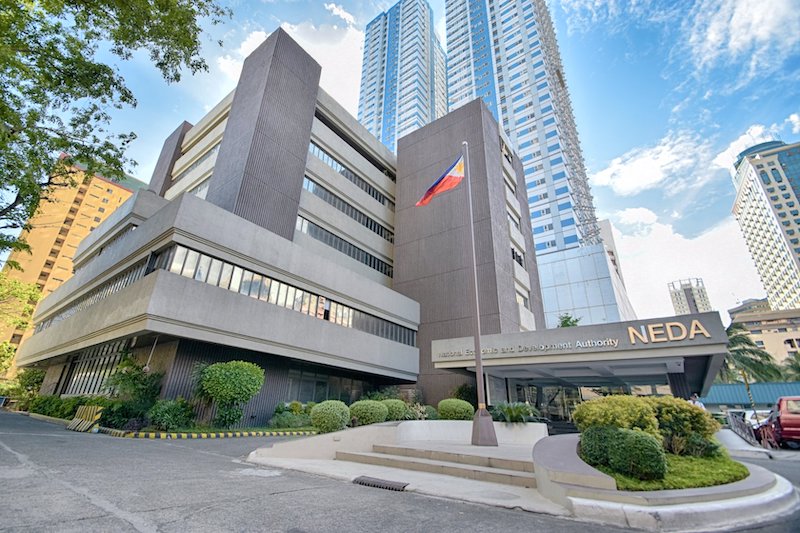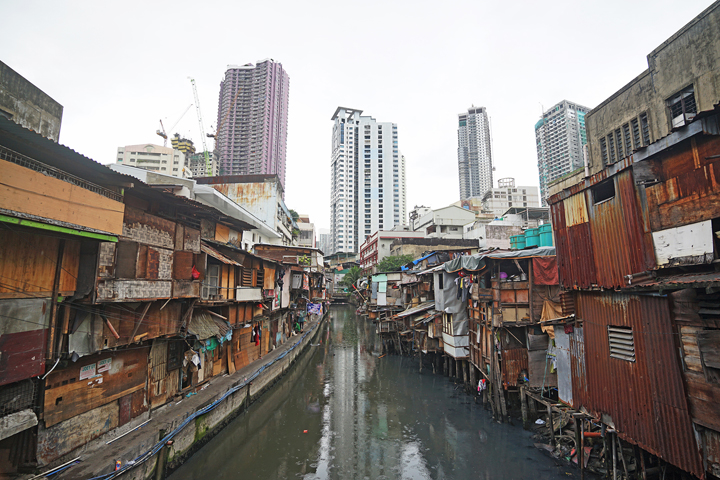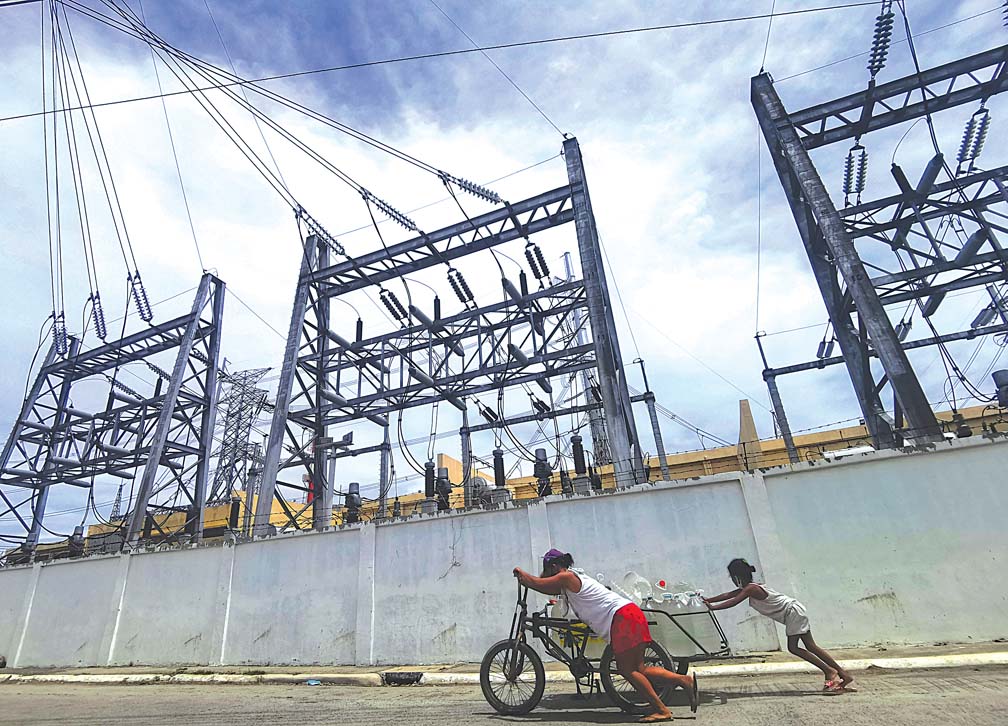Although it is now in a period of relative calm with the removal of “nemesis” Regina Paz Lopez as secretary of the Department of Environment and Natural Resources (DENR), the mining industry should still be bracing itself, as another “policy storm” is forthcoming. Or perhaps, the miners are just in the eye of this storm.
The House of Representatives, wanting to ensure the country and its people will be the first to reap the benefits presented by the Philippines’ rich mineral resources while promoting environmental protection, is now seriously considering a proposal requiring miners to secure a legislative franchise from Congress before they can operate.
The House Committee on Legislative Franchises chaired by Rep. Franz Alvarez of Palawan and House Committee on Natural Resources headed by Rep. Arnel Ty of LPGMA have recently created a technical working group (TWG) that will further study House Bill (HB) 6259, which requires legislative franchise for mining operations in the country.
“A TWG was made to further tackle the bill. With the creation of a TWG we will be able to hear several resource persons and members of the House Committee on Legislative Franchise and House Committee on Natural Resources,” Alvarez told the BusinessMirror.
Ty said introducing reforms to the mining industry is one of the major thrusts of the administration of President Duterte.
Aside from this bill, which brings with it a regulatory avalanche, newly confirmed Environment Secretary Roy Cimatu said he is pushing for a significant hike in the excise taxes imposed on mining companies. This is in line with Duterte’s instruction to him to study options on how the country can fully benefit from mining.
The mining industry has been experiencing a policy storm—from the imposition of a moratorium on new mining permits and designation of “mining no-go zones” with the signing of Executive Order (EO) 79 under the Aquino administration, to a stricter mine-audit process implemented by Lopez that led to closure or suspension orders affecting more than two dozen mining operations, cancellation of 75 mineral production sharing agreements (MPSAs) and the ban on open-pit mining method all over the country within the first year of the Duterte administration.
Now, Cimatu said the 2-percent excise tax being paid by miners to the government based on the gross value of ores and minerals is “too little”.
As to how much increase the government is eyeing to impose, Cimatu did not give a clear answer, but said some proponents placed it at 5 percent. “Well, there was this study before, there were some proponents before [who want] to increase the 2 percent to 5 percent.…These are the things that we have to plan properly, how much financial and so forth and so on. But the 2-percent excise tax seems too little,” Cimatu said in English and Filipino.
“There is no absolute value for the increase, yet. I think I will be bringing this to the MICC [Mining Industry Coordinating Council] as part of a policy recommendation later,” Cimatu added.
A bigger problem is the proposal to require miners to secure franchises, although Rep. Teddy Baguilat of Ifugao, a member of the so-called Magnificent 7, believes this will have a hard time squeezing through Congress due to “conflict of interest” issues.
“I’ve stated all along that this could be a conflict of interest because many of our colleagues have mining investments, either as direct investor or their families closely connected to investments in mining,” he said. “Would they be willing to divest themselves of these investments?”
HB 6259, which was included in the priority bills of Congress, was principally authored by Ty, Speaker Pantaleon Alvarez, Minority Leader Danilo Suarez of Quezon, Majority Leader Rodolfo Fariñas of Ilocos Norte, Deputy Speaker Frederick Abueg of Palawan, Deputy Speaker Ferdinand Hernandez of South Cotabato, Deputy Speaker Romeo Quimbo of Marikina, Deputy Speaker Raneo Abu of Batangas, Rep. Joel Almario of Davao Oriental, Rep. Abdullah Dimaporo of Lanao del Norte, Rep. Raul Daza of Northern
Samar, Rep. Ronaldo Zamora of San Juan, Rep. Manuel Jose Dalipe of Zamboanga, Rep. Juliet Ferrer of Negros Occidental, Rep. Arnolfo Teves Jr. of Negros Oriental, Rep. Emmanuel Billones of Capiz, Rep. Erlpe John Amante of Agusan del Norte, Rep. Luis Jose Campos Jr. of Makati, Rep. Jose Atienza Jr. of Buhay, Rep. Allen Jesses Mangaoang of Kalinga, Rep. Johnny Pimentel of Surigao del Sur and Rep. Luis Raymund Villafuerte Jr. of Camarines Sur.
‘Very rich’
The authors, in their explanatory note, said the Philippines is very rich in natural resources. With an estimated $1.4 trillion worth of mineral resources, the Philippines is among the top 5 most-mineralized countries in the world.
From 2009 to 2014 alone, the lawmakers said some P650 billion worth of minerals were extracted, mainly gold and nickel. From 2012 to 2014, the oil and gas sector contributed P125 billion to the national treasury.
However, the lawmakers said the challenge for the government is to ensure proceeds will translate into sustainable development and environmental protection, through greater transparency and accountability in the mining industry.
With the liberalization of the mining industry, the authors said it is important to note that it is among the least contributors to the country’s wealth, which only peaked at 1.63 percent in 2007.
“The present mining companies are not performing on a par with the potential
of the industry. By requiring mining firms to acquire a legislative franchise, the people, through their elected representatives, would be able to scrutinize the applicants, their capability and track record, in order to make sure that only responsible mining firms are allowed to operate in the country,” the authors’ explanatory note said.
“Hopefully, this creates more rigid and transparent prices and weeds out the underserving companies from securing a mining permit. As a result, the country and its people shall be the first to benefit from the extracted minerals,” it added.
Revenue
According to the lawmakers, the mining industry can contribute more to the government through its fair share in the revenue generated.
Unfortunately, they said, there have been reports that permits and agreements have confidentiality clauses, which, they added, preclude watchdogs from examining the arrangements entered into by the government with the mining firms.
To stop this practice, the bill mandates that contents of said permits and agreements are considered public information.
Domestic processing
The legislators also said their proposal seeks to provide mandatory domestic processing of all mineral ores and banthe exportation of unprocessed mineral.
The lawmakers, quoting Socioeconomic Planning Secretary Ernesto Pernia, said “the Philippines, despite its relatively small land area, is one of the most well-endowed countries in terms of mineral resources.”
They said the Mines and Geosciences Bureau of the DENR also reported that about 30 percent, or 9 million hectares, of the country’s total land area have high mineral potential.
Despite this, the legislators said, the mining sector’s gross value-added remains relatively low at an average of 0.7 percent of the country’s gross domestic product.
“One of the reasons pointed out for the insignificant contribution of the mining industry to the country’s economy is the fact that mineral ores in the country, after being mined or extracted, while still unprocessed, are already exported directly to foreign countries as raw materials. Meanwhile, downstream mining industry has not been developed. Thus, the benefits of added value through the value chain of mineral processing from mining cannot be maximized,” the explanatory note said.
The proposal imposes the ban on the export of unprocessed mineral ores to help develop the mineral processing industry in the Philippines and to benefit the localities where the minerals came from.
“The country and its people should be the first to benefit from the extracted minerals through employment, business opportunities and share in the profits. This will enable the mining sector to realize its full potential and increase its role in nation-building,” the lawmakers said in their explanatory note.
Meanwhile, the lawmakers said a mining disaster that affects a watershed creates a crisis of immense proportion, saying it is imperative to adopt a preemptive approach in protecting such watersheds.
“To allow mining in those areas is to risky,” the note said, adding: “There are different classifications of watersheds. The Mining Act of 1995 includes proclaimed watershed as an area closed to mining applications.”
To clarify the extent of said protections, the lawmakers want to include watersheds, in general, as well as critical watersheds, as part of the enumerated areas closed to mining applications.
Requisite
Under the bill, private contractors must first secure a legislative franchise as a prerequisite before they could apply for an exploration permit and mineral agreement under Section 26 of RA 7942, or financial and/or technical assistance agreement.
Further, it said, the terms and conditions of said permits and agreements are considered public information. Any clause or provision providing for the confidentiality of the contents, especially the financial terms and conditions, are null and void.
The measure said exploration permits and mineral agreements, as enumerated in
RA 7942, applied for and thereafter approved without first securing a legislative franchise shall also be null and void.
“Private contractors presently holding exploration permits and mineral agreements under Section 26 have one year from the time this law takes effect to secure a legislative franchise, otherwise said permits and agreement shall expire,” it added.
The bill also said small-scale mining cooperatives covered by RA 7076 shall be given preferential right to apply for a small-scale mining agreement for a maximum aggregate area of 25 hectares of such mineral reservation, subject to valid existing mining/quarrying rights and provided that there is no encroachment into areas outside of the mining agreement.
The measure said mineral agreements shall have a term not exceeding 10 years from the date of execution thereof, and renewable for another term not exceeding 10 years.
The bill said mineral ores extracted shall be processed within the Philippines and in the province where the extraction occurred, and those granted a mining-processing permit shall not export the unprocessed mineral ores.
It added a periodic assessment of private contractors’ waste disposal shall be systematically undertaken in a manner not harmful to the environment and shall submit annual waste disposal reports to the Environmental Management Bureau and Mines and Geosciences Bureau of the DENR.
Said private contractors are covered by RA 6969, or an act to control toxic substances and hazardous and nuclear wastes, providing penalties for violations thereof, whenever applicable.
Image credits: Dragunov1981 | Dreamstime.Com

































